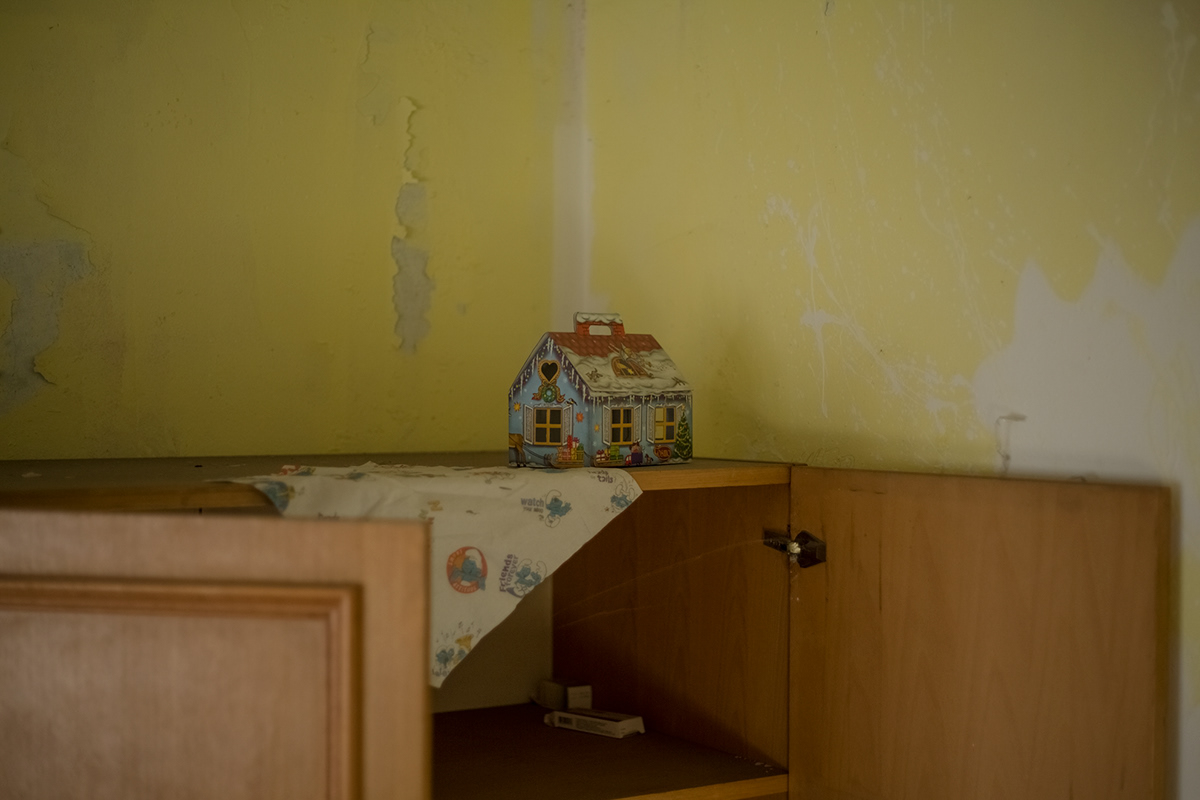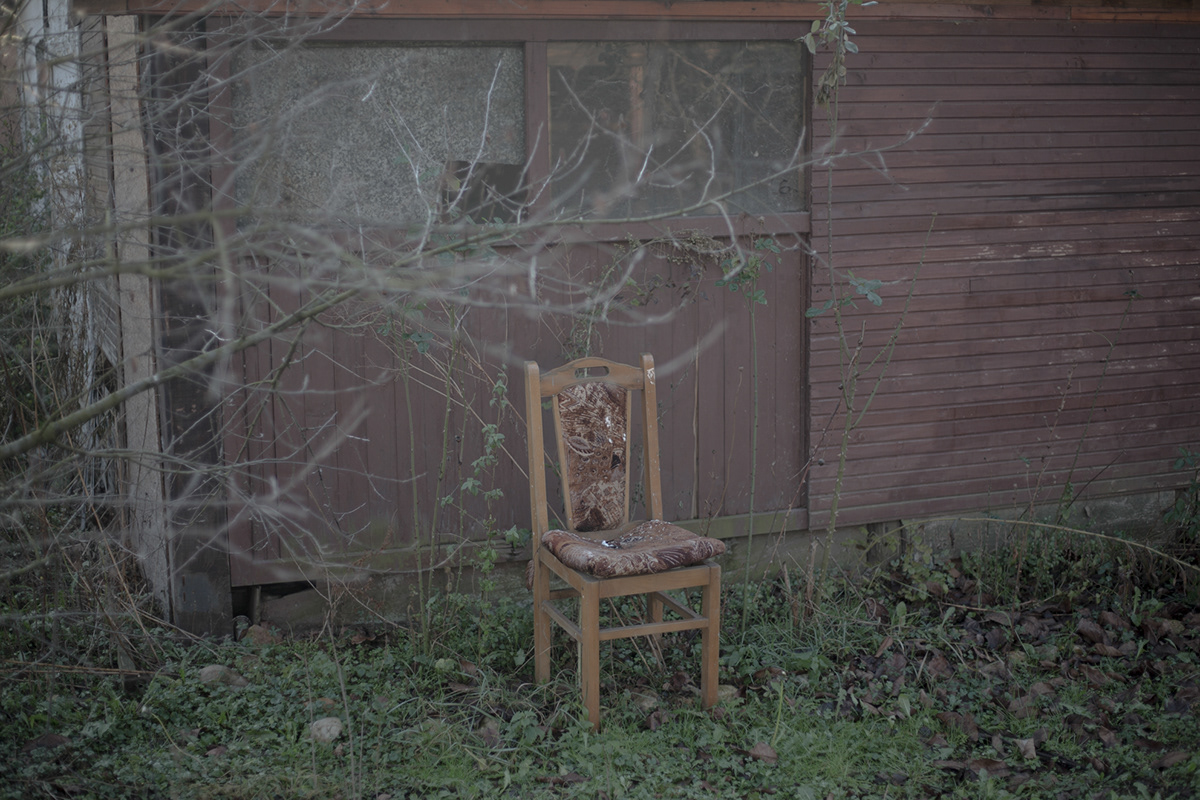
Kolubara A, one of the oldest coal power plants in the country seen through the mix of fog and pollution in the village of Veliki Crljeni, Serbia, 08/12/2019.
ENG
In Serbia, in 2016, 570 people have suffered a premature death due to air pollution, which puts the country at dominant first place in Europe and it didn't change to date. According to the report published at the beginning of 2019 by the Europe Beyond Coal campaign, under the responsibility of the Health and Environment Alliance (HEAL), out of the 10 coal power plants, which pollute Europe's air the most, 5 are situated in Serbia. People around the biggest coal mines and coal power plants are constantly leaving their homes. The ones who stay face major health problems. Asthma and respiratory diseases are commonplace for people living in these regions. The concentration of harmful particles emitted by these power plants is often 5 times higher than the limit set by the EU regulations. Despite all of this, Serbia, with financial support from China, continues to dig for the most climate-damaging source of energy and constructing new power plants.
As the fight against climate change and air pollution continue around the world this project investigates the causes and reveals the devastating consequences that coal has on the environment and people. Cruising down the roads of coal, and following its life, from the extraction to combustion, this project is a visual search for the parallel to human life, from birth to death and the final reunion with the soil we all come from. Documenting the ruined landscapes, abandoned places, homes, and items people have left behind, as well as intimate life stories, the aim of this project is to point out the global problems like exploitation of coal and sources of dirty energy, as the main causes of global warming around the planet.
SRB
U Srbiji je 2016. godine 570 ljudi doživelo prevremenu smrt zbog zagađenja vazduha. To svrstava ovu zemlju na ubedljivo prvo mesto u Evropi i to se nije promenilo do danas. Prema izveštaju objavljenom početkom 2019. godine, u okviru kampanje Europe Beyond Coal, pod odgovornošću Saveza za zdravlje i životnu sredinu (HEAL), od 10 termoelektrana na ugalj, koje najviše zagađuju Evropski vazduh, 5 se nalazi u Srbiji. Ljudi oko najvećih rudnika i termoelektrana na ugalj neprestano napuštaju svoje domove, a oni koji ostaju suočeni su sa velikim zdravstvenim problemima. Astma i bolesti disajnih organa su uobičajena pojava za ljude koji žive u ovim regionima. Koncentracija štetnih čestica koje emituju ove elektrane često je 5 puta veća od granice utvrđene uredbama EU. Uprkos svemu tome, Srbija uz finansijsku podršku Kine nastavlja sa iskopavanjem najprljavijeg izvora energije i sa izgradnjom novih elektrana.
Dok se borba protiv klimatskih promena i zagađenja vazduha nastavlja širom sveta, ovaj projekat istražuje uzroke i otkriva razorne posledice koje ugalj ima na životnu sredinu i ljude. Krstareći putevima uglja i prateći njegov život, od iskopavanja do sagorevanja, ovaj projekat je vizuelna potraga za paralelom sa ljudskim životom, od rođenja do smrti i ponovnim spajanjem sa zemljom iz koje svi potičemo. Dokumentujući uništene pejzaže, napuštena mesta, domove i predmete koje su ljudi ostavili, kao i intimne životne priče, krajnji cilj ovog projekta je da ukaže na globalni problem eksploatacije uglja i prljavih izvora energije, kao glavne pokretače globalnog zagrevanja širom planete.

Corpses and leftovers of dead animals lying down next to the coal pit in the village of Vreoci, Serbia, 09/11/2019.Vreoci, once populated with 5000 people and vibrant place, today is surrounded by a coal mine, extremely polluted and almost completely abandoned. Clean water is available only for a few hours a day because it was diverted for coal mining purposes. Remaining residents face respiratory diseases and other serious health problems.

Field 'Tamnava Zapadno polje', one of the 4 active fields in the Kolubara coal mine seen from the abandoned restaurant near the village of Veliki Crljeni, Serbia, 09/11/2019.

In the field "Veliki Crljeni" exploitation is completed. Today, it is a hole constantly being filled by underground waters. According to the people living in the immediate proximity, it is very dangerous for the environment and the health. Village of Veliki Crljeni, Serbia, 10/02/2020.

The interior of the abandoned summer house in the village of Vreoci, Serbia, 17/11/2019.

The interior of the abandoned summer house in the village of Vreoci, Serbia, 17/11/2019.

A small Christmas toy house found on the top of the wardrobe cabinet, together with empty medicine boxes inside it, in an abandoned house in the village of Vreoci, Serbia, 24/11/2019.

A demaged wall poster found in an abandoned house in the village of Vreoci, Serbia, 17/12/2019.

The late sunlight coming through the window in one of the few hundred abandoned houses in the village of Vreoci, Serbia, 08/12/2019.

The broken chair found in an abandoned backyard in the village of Vreoci, Serbia, 08/12/2019.

Desanka Dackovic was 64 when she passed away in 2019 due to heart and abdominal problems. She was an asthmatic and allergic to coal. Village of Veliki Crljeni, Serbia 04/03/2020.

